Optimized ARV Saves the Life of a 2-Year-Old Girl
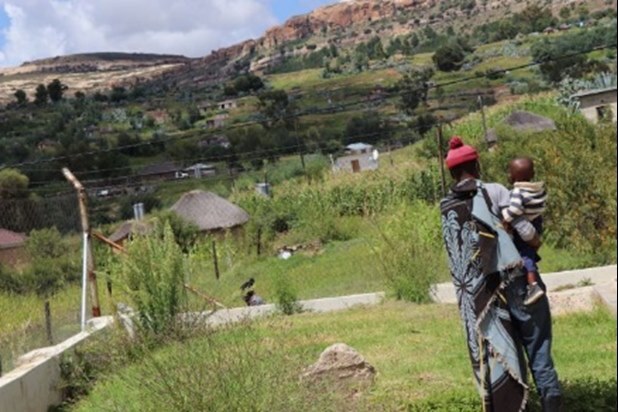 Lerato is a 2-year-old living in rural Lesotho. Her mother is living with HIV, but she never disclosed her status to her husband and family. Due to fear of stigma, Lerato’s mother decided to quit taking her antiretroviral (ARV) treatment even though she was pregnant. Lerato was born with HIV—but she was not tested and her HIV status remained unknown.
Lerato is a 2-year-old living in rural Lesotho. Her mother is living with HIV, but she never disclosed her status to her husband and family. Due to fear of stigma, Lerato’s mother decided to quit taking her antiretroviral (ARV) treatment even though she was pregnant. Lerato was born with HIV—but she was not tested and her HIV status remained unknown.
Lerato’s mother eventually left home, leaving Lerato in the care of her father, Rethabile Ramotsetle. He became alarmed that Lerato’s health deteriorated significantly. She was weak and no longer playful. In December 2020, Ramotsetle brought her to Ha Mofoka Health Centre where she was diagnosed with severe malnutrition, severe wasting, and stunting. Lerato was tested for HIV and her father then learned his daughter’s HIV-positive status. The baby was enrolled on optimized ARVs for children, in pellet form.
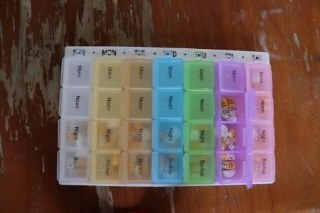
“Since she started treatment, her health has improved immensely. She is eating well and she now looks healthier and playful, as she used to be,” explained her father.
Ramotsetle thanked the health care workers for saving the life of his daughter. As a caregiver for his daughter, he promised to always adhere to the treatment to ensure the good health of his baby.
“I have hope for bigger and better things for my daughter, and with treatment adherence she will grow to adulthood just like any other child.”
Through the generous support of Unitaid, the Clinton Health Access Initiative (CHAI)-led Optimal Project is accelerating access to optimal pediatric and adult treatment regimens, and catalyzing the market for preventing, diagnosing, and treating advanced HIV disease (AHD) across 16 countries. In partnership with CHAI through this project, the Elizabeth Glaser Pediatric AIDS Foundation (EGPAF) is supporting rapid introduction of optimal pediatric ARVs in Cote d’Ivoire, Eswatini, Lesotho, and Mozambique.
Baby Kamo Is Alive and Healthy Thanks to Optimized Treatment and Intervention
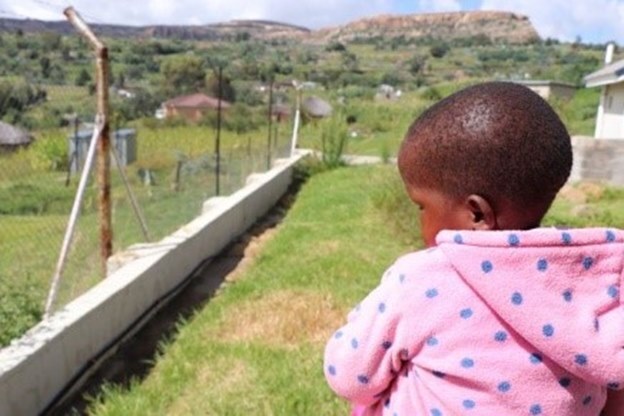 Kamo is a four-year-old girl born with HIV. Her health records show that she has always had high viral load, despite being initiation of antiretroviral (ARV) therapy. The baby was always sickly, malnourished and weak.
Kamo is a four-year-old girl born with HIV. Her health records show that she has always had high viral load, despite being initiation of antiretroviral (ARV) therapy. The baby was always sickly, malnourished and weak.
Health workers at Mofoka Health Centre noticed that the baby was experiencing a high HIV viral load, with more than one million copies in her blood. After close monitoring, the child was switched to optimized ARVs in the form of pellets. Immediately after she was switched to optimized ARVs, she responded well to treatment, and her viral load improved and dropped from millions copies to 62,000 copies.
Health workers expected that she would improve in the next viral load monitoring. But that was not the case. Instead, her next testing results indicated that her viral load had tripled!
Clinicians conducted an emergency home visit to intervene and save baby Kamo’s life. They found that the mother had left the family home for a housekeeping job and had left the girl with Kamo’s grandmother and uncle. For fear of stigma, the mother had not disclosed Kamo’s status, so they were unaware that she must take daily treatment.
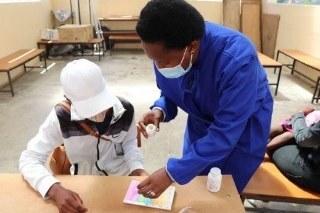
Even with access to the best drugs and healthcare workers, stigma remains, for many, the greatest barrier in achieving positive health outcomes. Without the safety and trust that disclosure will not threaten relationships, housing, and livelihood, adherence will always be an uphill battle.
The heath workers at Mofoka Health Centre knew this, so they called Kamo’s mother for a meeting with the family and health care workers. With the support of a psychologist, Kamo’s heath care team assisted her mother in disclosing the baby’s HIV status to the family—especially the uncle and grandmother—so that they ensure treatment adherence when the mother is away.
Her uncle has since started taking care of baby Kamo, and the adherence to treatment and her clinical appearance have both improved. She tested for viral load again and still waiting for results.
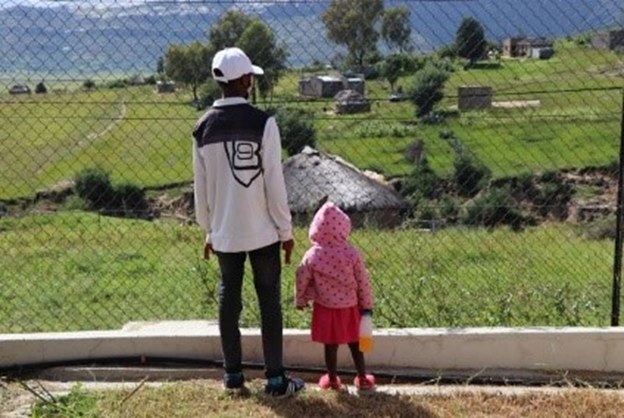
Community health worker ‘Mathabang Sethakha keeps in touch with the family to ensure that caregivers do not miss check-up appointments for the baby.
“My role is to remind the family about the clinical appointments. I have never encountered any problem while assisting the family. The baby is now not missing treatment appointments anymore,” says ‘Mathabang.
Uncle Atang promises to always adhere to his niece’s treatment in order to keep her healthy. He thanked all who intervened especially the health care workers.




